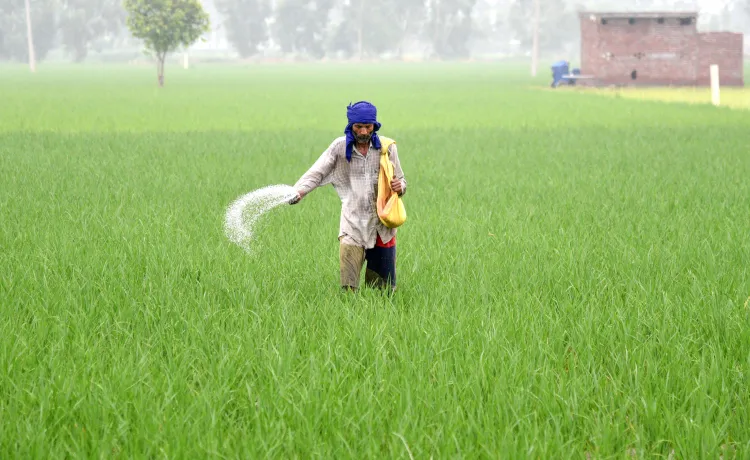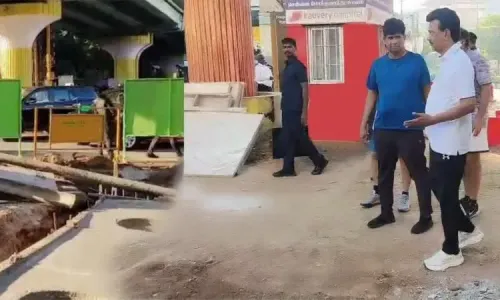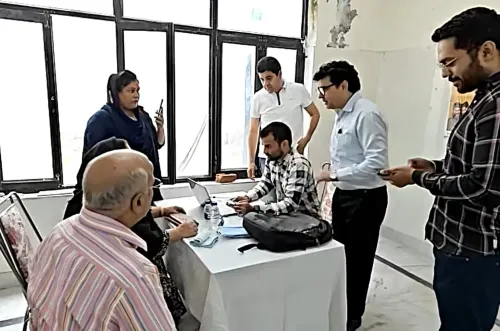Is the Centre Committed to Reducing Urea Usage with Alternative Fertilizers?

Synopsis
Key Takeaways
- Introduction of alternative fertilizers to reduce urea usage.
- Soil Health and Fertility Scheme aims to improve soil productivity.
- 25.13 crore soil health cards issued to farmers.
- Promotion of organic farming through financial assistance.
- Support for farmers via Direct Benefit Transfer.
New Delhi, Aug 6 (NationPress) In a bid to promote the balanced and prudent use of fertilizers, the government has announced the introduction of alternative fertilizers such as organic fertilizers, bio-fertilizers, de-oiled cake, organic carbon enhancer, and nano-fertilizers to support effective nutrient management.
The Soil Health and Fertility Scheme, which was initiated in 2014, aims to assist states in advocating for Integrated Nutrient Management (INM) through the careful application of chemical fertilizers, alongside secondary and micro nutrients, combined with organic manures and bio-fertilizers to enhance soil health and productivity.
Soil samples are analyzed according to standardized procedures for various factors, including pH, electrical conductivity (EC), organic carbon, available nitrogen, phosphorus, potassium, sulfur, and micronutrients (such as zinc, copper, iron, manganese, and boron), as stated by Union Minister of State for Chemicals and Fertilizers, Anupriya Patel, in a written reply in the Rajya Sabha.
The Soil Health Card offers farmers insights into the nutrient status of their soil and suggests the suitable dosage of nutrients for enhancing soil health and fertility.
To date, 25.13 crore soil health cards have been distributed to farmers, along with approximately 93,781 farmer training sessions, 6.80 lakh demonstrations, and 7,425 farmer melas/campaigns focused on soil health card recommendations throughout the nation.
The government promotes organic farming through the Paramparagat Krishi Vikas Yojana (PKVY) across all states and UTs, excluding the North Eastern States, while the Mission Organic Value Chain Development for North Eastern Region (MOVCDNER) specifically addresses the Northeast.
Under PKVY, financial assistance of Rs 31,500 per hectare over three years is allocated for advancing organic farming practices.
This includes Rs. 15,000 per hectare granted to farmers via Direct Benefit Transfer for both on-farm and off-farm organic inputs, including organic compost. For MOVCDNER, an aid of Rs 46,500 per hectare over three years is provided for establishing Farmers Producer Organizations and supporting farmers with organic inputs, among others,” the minister elaborated.
Of this amount, Rs 32,500 per hectare is allocated for off-farm and on-farm organic inputs, which also includes Rs 15,000 delivered to farmers through Direct Benefit Transfer, the minister concluded.









